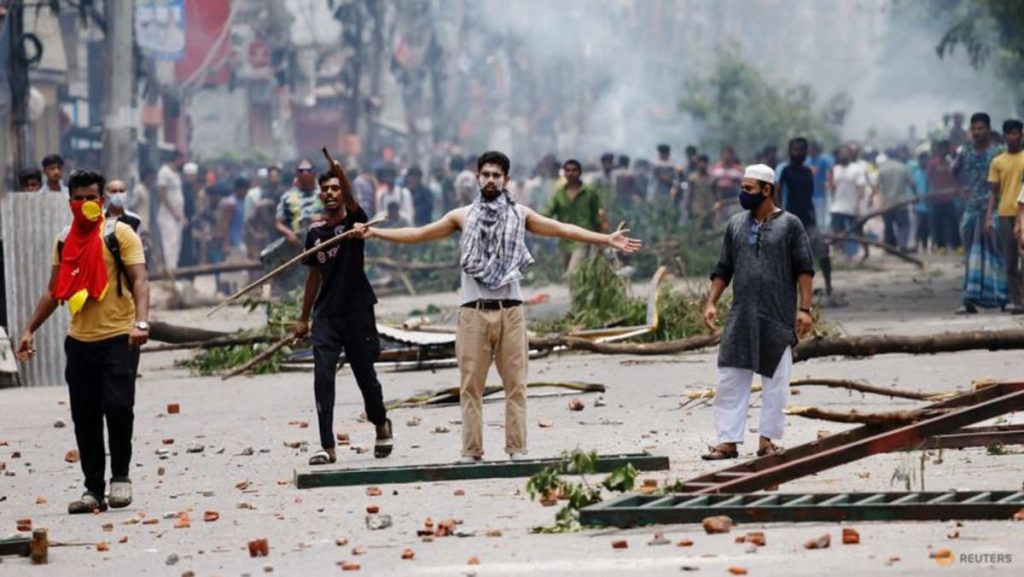The streets of Dhaka, Bangladesh were tense as soldiers patrolled in response to student-led protests against government job quotas that had turned violent. At least 114 people had been killed, with four more dying during sporadic clashes on Saturday. Prime Minister Sheikh Hasina declared Sunday and Monday as “public holidays” with only emergency services operating, following the closure of universities and colleges earlier in the week. The quota system for government jobs, which included reserved spots for families of independence fighters, had sparked the demonstrations. Despite the government scrapping the quota system in 2018, it was reinstated by a court last month, leading to widespread unrest.
High youth unemployment in Bangladesh, combined with the reinstatement of the contested quota system, fueled the protests, which were the largest since Hasina’s re-election earlier in the year. In an effort to quell the unrest, the internet and text message services were suspended, isolating the nation and preventing communication among citizens. Overseas calls to Bangladesh also experienced connectivity issues, further limiting communication. The decision to suspend internet services sparked concern among experts, with comparisons drawn to the Egyptian revolution in 2011. The shutdown created additional challenges, such as the inability for individuals to top up their electricity meters, leaving many without power.
The violent clashes between protesters and security forces have resulted in thousands of injuries, with hospitals across Bangladesh treating the wounded. Dhaka Medical College Hospital alone received 27 dead bodies in just two hours on Friday. In response to the escalating situation and the inability of law enforcement to control the protests, a national curfew was imposed and the military was deployed with orders to shoot if necessary. Despite the curfew, a two-hour window was allowed on Saturday for essential errands before its resumption and reassessment on Sunday. The government faced challenges in bringing the situation under control, with the unrest continuing to intensify.
The ongoing demonstrations in Dhaka were marked by intense violence, with police resorting to tear gas, rubber bullets, and sound grenades to disperse protesters who responded with brick-throwing and vehicle arson. The death toll rose as the clashes persisted, prompting authorities to impose a national curfew and call in the military to restore order. Despite the curfew, which allowed for a brief respite on Saturday for essential activities, the unrest remained a significant threat to public safety in Bangladesh. The government’s response to the crisis has faced widespread criticism, particularly regarding the suspension of internet services and the use of deadly force by security forces. As the situation continued to unfold, concerns remained about the potential for further violence and the impact on the country’s stability and future.


